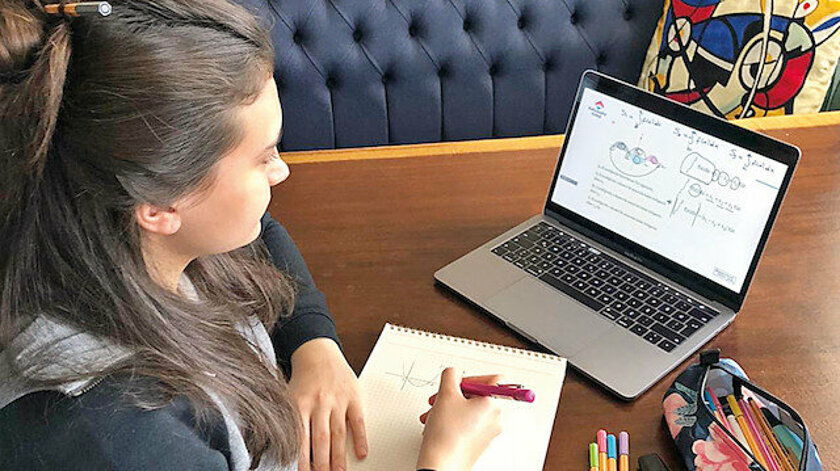An Online Right Violation: E-ducation
Mert Batur
Due to the Covid-19 pandemic, changes have been made to all forms of social life in Turkey. The pandemic has caused changes in many fields such as healthcare, education and the economy; all which we have recently felt the results of. We’ve all been affected by the pandemic, but some of us have been more affected. Employees who have to work, young people who do not have access to online education, women who are exposed to violence and oppression at home are all experiencing the global effects of the pandemic and paying the price of the regulations aimed at control of COVID- 19.
Education is a fundamental right
The pandemic has fundamentally changed education and training. Face-to-face education in primary and secondary education institutions and universities has been moved to an online course system. However, online education has become the official expression of a situation where students cannot get educated due issues such as a lack of suitable infrastructure in most institutions, unequal internet access, and not all fields being suitable for this form of education.
Why is education not a service provided when suitable, but a right that should be provided under all conditions? Because the state has obligations in the field of education. The right to education is regulated in Article 42 of the Constitution as follows: “No one can be deprived of the right to education and training. (…) Primary education is compulsory for all citizens, boys and girls, and is free in state schools. (…) The state provides scholarships and other means of assistance to enable successful students who lack financial means to continue their education.“
The fact that education is “free” as a constitutional right does not only mean that courses should be free. The right to education includes free access to education for students studying at institutions of all levels and all degrees. From this point of view, providing transportation to institutions, meeting the nutritional and accommodation needs of students, and providing all opportunities that would make it possible to hold education free of charge with the state guarantee are also within the scope of the right to education. According to one of the main principles in Article 4 of the Higher Education Law: “Measures are taken to ensure equality of possibility and opportunity in higher education.” There is no doubt that the expression of equality of “possibility and opportunity” covers the access to courses of students who have enrolled in universities.
The New Normal: Right to Education
The expression “new normal” is used to describe the public life determined by the regulations made due to the pandemic. Maintaining education online is also an important part of this “new normal”. However, the right to education is also violated in this new normal. According to the statistics given by the Minister of Education Ziya Selçuk regarding online education; “20 percent of students have problems accessing the internet.” Ziya Selçuk had previously stated the following about the collapse of the online education system at primary and secondary levels: “So the demand is very high, we should be happy about it.” Considering this statement, we can point out that: “At least 20 percent of the students cannot access the internet. We do not know the number of students who have sufficient regular and fast internet access for online education.”
Under these conditions, it cannot be said that the right to education has been achieved or that the state has provided the most basic needs such as access to technological equipment or to a stable and fast internet connection. Providing these opportunities to all students, including university students, is one of the responsibilities of the state as specified in the Constitution.

